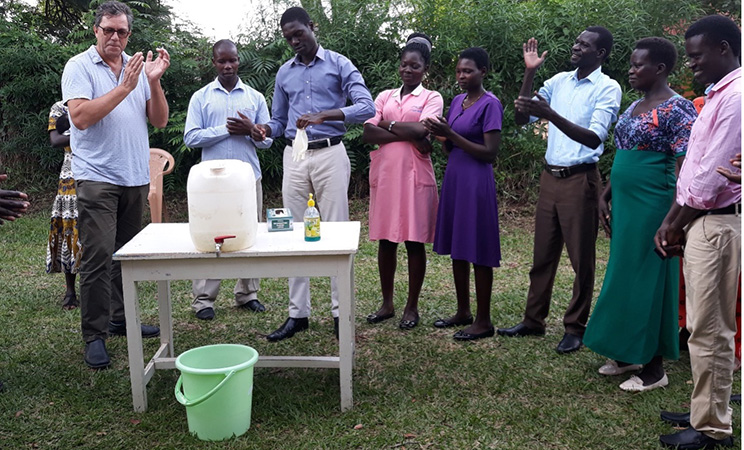
The HAT-r-ACC consortium is pleased to share that patient recruitment for this study has now been completed in Malawi and Uganda. The main objective of the HAT-r-ACC project, funded by EDCTP and Portuguese Fundação para a Ciência e a Tecnologia (FCT), is to provide clinical data to assess the safety and efficacy of fexinidazole as a treatment for both stages of T.b. rhodesiense. The study will be completed before the end of 2022, once the last patients have had their 12-month follow-up visits.
Started in September 2018, this five-year project forms an important part of the Drugs for Neglected Diseases initiative’s long-term research and development (R&D) goal for sleeping sickness, through the development and registration of two new drugs effective against all stages of the disease and both subspecies of the parasite that affect humans, T.b. gambiense and T.b. rhodesiense. The consortium is composed of DNDi, the Ministry of Health and Population Malawi, the Ugandan National Health Research Organisation (UNHRO), Makerere University Uganda, Epicentre France, Universidade Nova de Lisboa Instituto de Higiene e Medicina Tropical (IHMT) Portugal, Institut de Recherche pour le Development (IRD) France, and the Swiss Tropical and Public Health Institute (Swiss TPH) Switzerland.
Fexinidazole, a 10-day once-a-day oral-only treatment for sleeping sickness developed by DNDi, was added to the World Health Organization’s List of Essential Medicines in July 2019. The drug is currently indicated as a treatment only for T.b. gambiense sleeping sickness, the most common form of the disease. It is planned to use the results from the HAT-r-ACC study to extend the indication of fexinidazole for T.b. rhodesiense in WHO’s Essential Medicines List by mid-2023.
In addition to the clinical trial, the project has also conducted key social science studies in Malawi and Uganda to explore the perceptions and practices of local communities and peripheral health centre staff regarding sleeping sickness, to improve case detection, referral, and access to treatment. Advocacy posters were also developed to raise awareness about the disease and encourage speedy diagnosis and treatment, which is particularly important for T.b. rhodesiense sleeping sickness.
